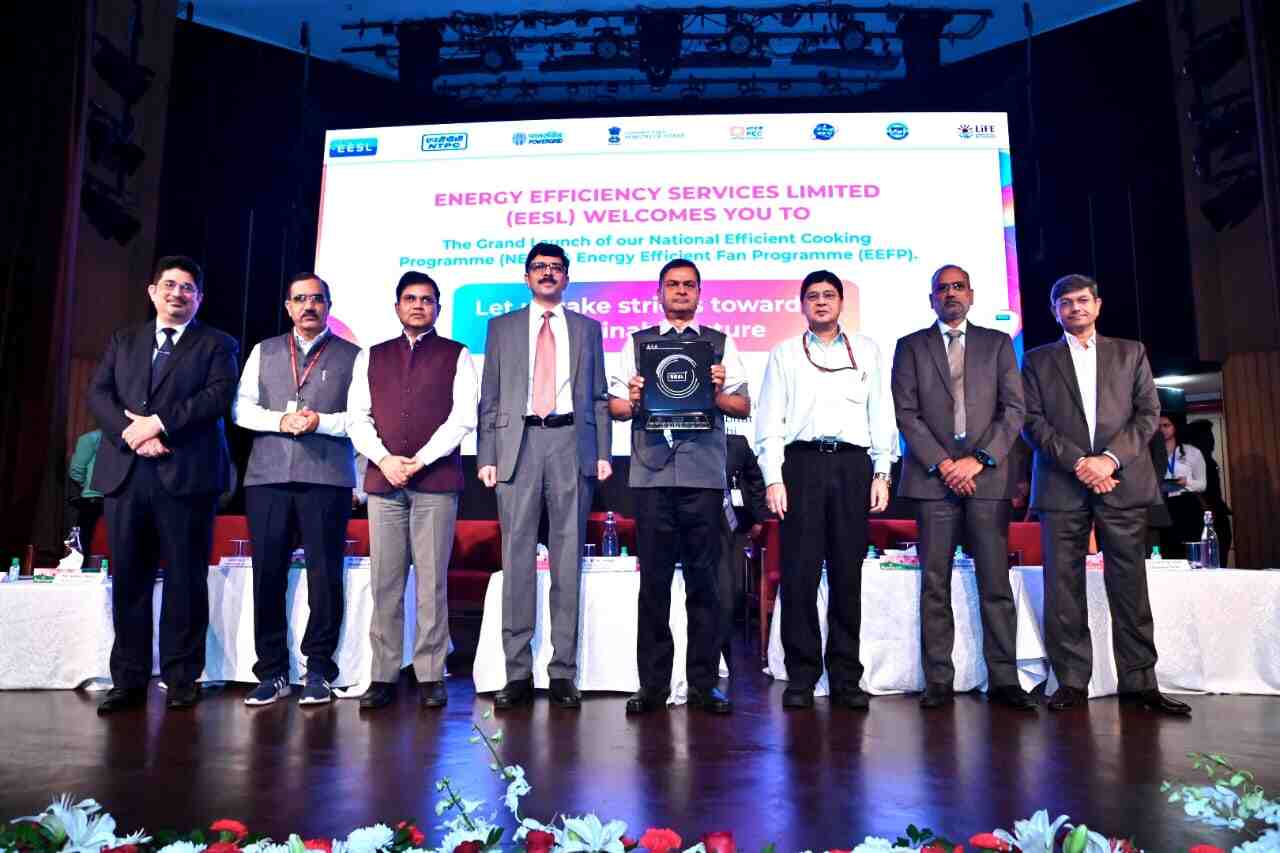Programme Aims to Deploy 1 Crore Energy-Efficient Ceiling Fans and 20 Lakh Induction Cookstoves Across India. Here we list you five things to know about EESL’s National Efficient Cooking Programme and Energy Efficient Fans Programme
- The National Efficient Cooking Programme (NECP) introduces induction-based cookstoves, which offer a cost advantage of 25-30% over traditional cooking methods, promising both energy savings and cost-effective cooking solutions. EESL aims to deploy 20 Lakh induction cookstoves across India to reduce the environmental impact of cooking methods and improve the health of citizens.
- The Energy Efficient Fans Programme (EEFP) focuses on deploying energy-efficient BLDC fans, with the goal of distributing 1 crore ceiling fans. These initiatives not only reduce energy consumption and environmental impact, but also enhance consumer comfort while lowering electricity bills.
- EESL has partnered with Modern Energy Cooking Services (MECS) for the large-scale deployment of induction cooktops. This partnership is expected to accelerate the acceptance and large-scale adoption of modern electric cooking devices in Indian kitchens.
- The NECP and EEFP are aligned with India’s National Cooling Plan, which targets efficient cooling solutions for the masses by 2024. EESL is supporting these efforts by providing innovative, affordable solutions on a large scale.
- EESL has a proven track record of success in promoting energy efficiency in India. For example, its UJALA program has distributed millions of LED bulbs, resulting in significant energy savings and carbon emission reductions. EESL is confident that its NECP and EEFP initiatives will have a similar impact on the cooking and cooling sectors.
Key takeaways :
- India has long relied on biomass-based cooking alternatives, which have had a detrimental impact on citizens’ health and the environment.
- 60% of India’s future energy demand is expected to come from the cooling sector.
- Ceiling fans contribute to approximately 40% of total residential electricity consumption.
- By replacing all current ceiling fans with the most efficient models available today, nearly 20% of total residential electricity consumption can be diminished.
EESL’s NECP and EEFP initiatives are a significant step towards addressing these challenges and promoting a more sustainable and energy-efficient future for India.


